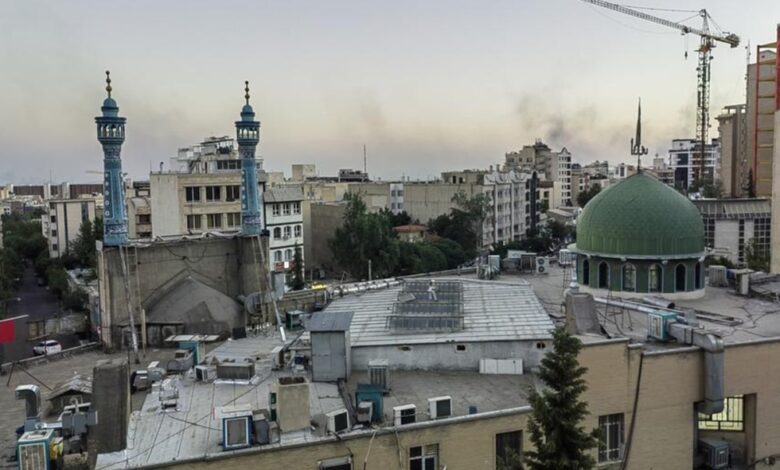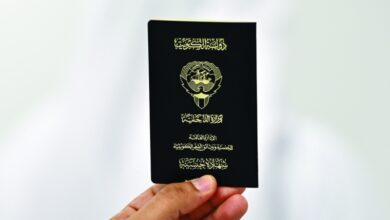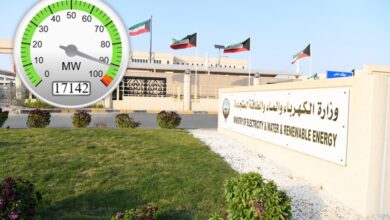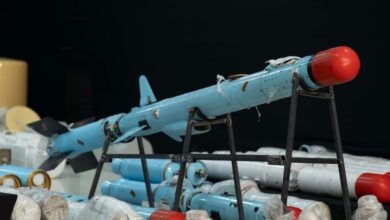
The war between Israel and Iran has entered its second week with no signs of de-escalation. Both sides continue to exchange attacks as tensions escalate further. Israel has declared it will not halt its military campaign until all strategic goals are achieved, while Iran insists it possesses the resources and firepower to sustain a prolonged conflict.
In the latest wave of strikes, Israeli warplanes launched a series of attacks on Isfahan in southern Iran, where more than ten explosions were reported. Israel’s Defense Minister Yoav Gallant confirmed the military has killed top-ranking Quds Force officials in targeted airstrikes, reports Al-Jarida daily.
One of the key figures eliminated was Saeed Izadi, commander of the Palestinian unit in Iran’s Quds Force, in a strike on an apartment in the Qom province. Later, the Israeli military announced the killing of Benham Shahriari, the deputy commander of the Quds Force, in a precision strike on his vehicle in western Tehran.
Shahriari, according to Israeli intelligence, was responsible for transferring weapons to Iran’s regional allies, including Hezbollah in Lebanon, Hamas in Gaza, and the Houthis in Yemen.
The Israeli military claims that Shahriari oversaw the delivery of rockets and missiles used in recent attacks against Israeli targets. Iran’s Islamic Revolutionary Guard Corps (IRGC) has not officially confirmed the deaths of Izadi or Shahriari.
These strikes represent a significant blow to the Quds Force, the external operations wing of the IRGC, which has played a central role in forming and supporting the so-called “Axis of Resistance”—a network of Iran-aligned groups across the region.
While the Quds Force has backed movements like Hezbollah and Hamas for decades, both organizations have suffered heavy losses since Hamas’s assault on southern Israel on October 7, 2023, and the subsequent Israeli retaliatory operations.
Defense Minister Gallant called Izadi’s elimination a “major achievement for Israeli intelligence and airpower,” stating he had directly funded and armed Hamas during the initial October attacks. Both the U.S. and the U.K. had previously sanctioned Izadi for his connections to Hamas and Islamic Jihad.
Reports from Iran’s Mehr and Fars news agencies indicated that Israel had carried out an attack near a nuclear facility in Isfahan. While there were no signs of radioactive leaks, the strike marks a bold escalation, targeting a sensitive area of Iran’s nuclear infrastructure.
Israel later confirmed the assassination of another IRGC commander, Amin Pour Jodaki, in southwestern Iran. He was allegedly responsible for coordinating hundreds of drone attacks on Israel.
Israeli Foreign Minister Gideon Sa’ar stated that such strikes have already set back Iran’s nuclear ambitions by “at least two to three years.” He added, “We will not stop until we do everything, we can to eliminate this threat,” referring to Iran’s nuclear weapons development.
Amid the rising tensions, Russian President Vladimir Putin issued a statement aimed at reducing fears of Iran’s nuclear intentions.
In an interview with Sky News Arabia, Putin said that Russia and the International Atomic Energy Agency (IAEA) have never found evidence that Iran is developing nuclear weapons.
He emphasized that Moscow has repeatedly communicated this position to Israel. Putin reiterated Russia’s readiness to support Iran in developing a peaceful nuclear program, affirming Tehran’s right to do so under international law.
While Israel claims its operations have significantly weakened Iran’s strategic military capabilities, Iran continues to resist international calls for negotiation, declaring it will not engage in talks with the U.S. as long as Israeli strikes continue.
The situation remains volatile, with regional and global powers closely monitoring developments. As Israel intensifies its military campaign and Iran vows to retaliate, the risk of wider conflict across the Middle East grows increasingly acute.












